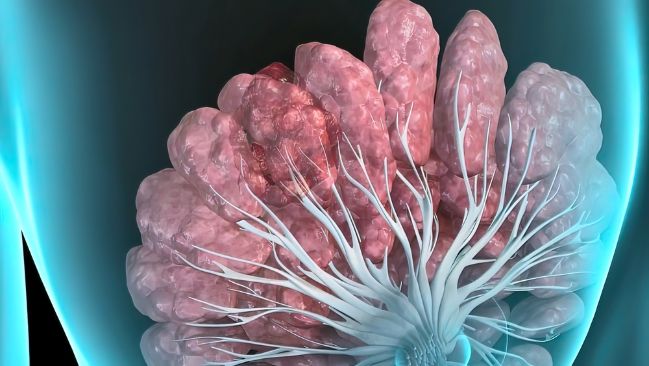Triple negative breast cancer is harder to treat than some other kinds of invasive breast cancer. But researchers are making progress. Overall, 77% of women diagnosed with TNBC are alive five years after their diagnosis.
To diagnose a type of cancer, doctors take a sample of cancerous tissue and look at it under a microscope. This helps them figure out the kind of cells the cancer is made from. It also helps them find out if the cancer cells have any normal, precancerous, or healthy genes. In some cases, they may use a special test called a tumor marker to check for certain proteins in the cancer cells.
Normally, cancer cells don’t make these proteins. But if they do, they’re more likely to grow and spread.
Breast cancers that don’t have hormone receptors or the protein HER2 are called HER2-negative or triple negative (TNBC). TNBC is more common in younger women, especially black and Latina women. It’s also more common in women who have the genetic change BRCA1. This gene usually prevents breast cancer, but when it mutates, it makes the cells more vulnerable to cancer.
TNBC tends to grow more quickly than other types of invasive breast cancer. It can also be harder to treat than other breast cancers because it doesn’t have the hormone receptors and HER2 protein that are targets for drug treatment.
Doctors try to give women with TNBC the best chance for a good outcome by treating them according to their cancer subtype. They also look at how far the cancer has spread and other factors.

TNBC is often grouped with basal and inflammatory breast cancers, which have different treatment approaches. Doctors are also learning more about how other breast cancer subtypes like medullary, ductal, and metaplastic breast cancers differ from each other.
When treating TNBC, doctors use drugs to target the cancer cells and stop them from growing and spreading. They may use a combination of chemotherapy, surgery, radiation therapy, and other treatments. They might also use a type of immunotherapy that boosts the body’s natural defenses against cancer.
Doctors may also use a drug that links a chemical toxic to cancer cells with an antibody that targets a receptor that helps cancer cells grow. Sacituzumab govitecan-hziy (Trodelvy) is a type of this drug that’s FDA-approved for people with metastatic triple negative breast cancer who have already had two other cancer treatments.
TNBC that has spread to other parts of the body is treated with chemotherapy and other cancer drugs. They might also give a drug that targets a protein that’s involved in helping cancer cells grow, such as atezolizumab or pembrolizumab.
Doctors don’t know exactly what causes triple negative breast cancer, but they think it might be because of the BRCA1 mutation. This gene is meant to protect against cancer, but if it mutates, the cell can’t do that job and may start growing and dividing out of control. This type of cancer also tends to be more aggressive than other types of invasive breast cancer.








